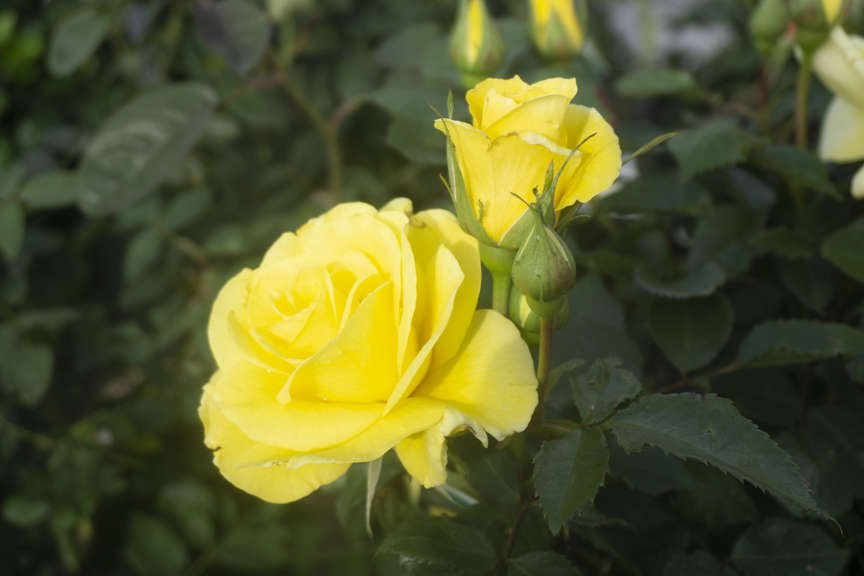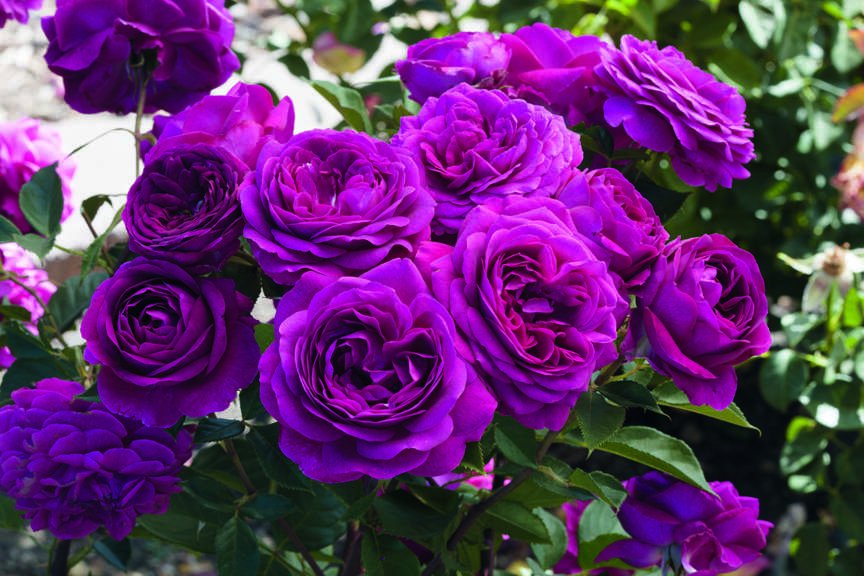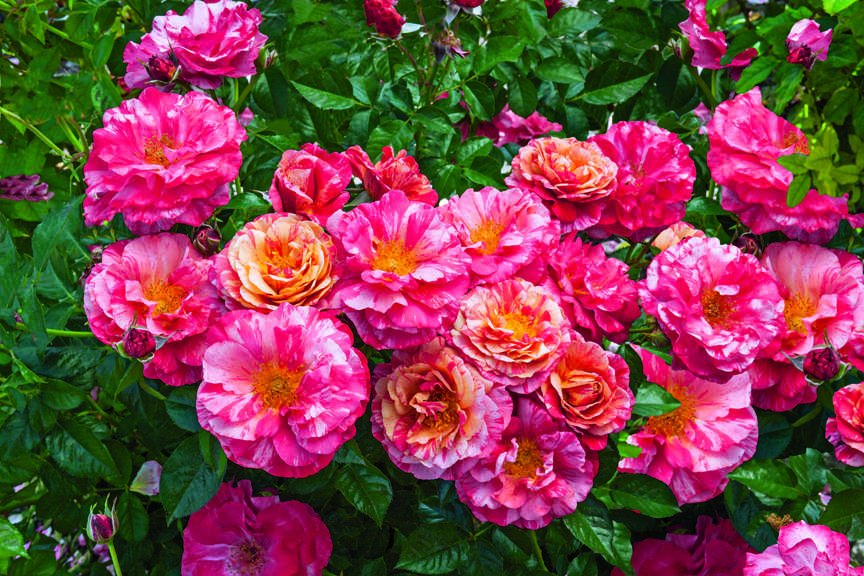
Keeping Your Roses "Rosy"

Keeping Your Roses "Rosy"
You've been enjoying your roses all season long, so why stop now? Help keep your roses blooming and happy with these simple guidelines for watering, deadheading and fertilizing.

Watering: Deep & Infrequent
As the weather warms up, make sure your roses are getting adequate water. Spring and summer in the Sacramento region can be unpredictable. A week of rain followed by a heat wave can throw irrigation practices into a tailspin. Be proactive by checking the soil before irrigating.
Roses don’t like “wet feet”—meaning they don’t want to be sitting in water. Watering missteps can also be the beginning of pest issues. Wait to water your roses until the soil is dry to the touch 3”-4” deep. Using a moisture meter, a soil probe, or your very own fingers are simple ways to check moisture. Luckily, if given enough water, roses will thrive even in the hottest of climates.
How to water roses? Deep and infrequent watering is preferred. A slow drip emitter 2-3 times a week, depending on the weather, is preferable to a daily watering schedule. Opt for drip irrigation instead of sprinklers.
Roses don’t like “wet feet”—meaning they don’t want to be sitting in water. Watering missteps can also be the beginning of pest issues. Wait to water your roses until the soil is dry to the touch 3”-4” deep. Using a moisture meter, a soil probe, or your very own fingers are simple ways to check moisture. Luckily, if given enough water, roses will thrive even in the hottest of climates.
How to water roses? Deep and infrequent watering is preferred. A slow drip emitter 2-3 times a week, depending on the weather, is preferable to a daily watering schedule. Opt for drip irrigation instead of sprinklers.

Deadheading: A Way To Prolong Blooms
Deadheading is a fancy word for a simple task. In order to encourage more flowers, you’ll want to cut off spent flowers. If the rose bush is getting too tall or overgrown with foliage, preventing adequate airflow, you may also cut off superfluous foliage to encourage overall plant health. Deadheading will not only help encourage more blooms, but it will make your garden look neater. A win-win!

Fertilizing: Regular Food Equals Regular Flowers
A simple organic fertilizer every six weeks or so will keep your roses beautiful and healthy. Organic fertilizers are slow release which means they provide nutrients to the plant when it needs it. We like E.B. Stone® Organics Rose Food; just be sure to follow label instructions.
Please note that synthetic fertilizers are fast-acting and should be applied with caution to avoid burning the plant. This is especially important during warm season months.
Please note that synthetic fertilizers are fast-acting and should be applied with caution to avoid burning the plant. This is especially important during warm season months.
